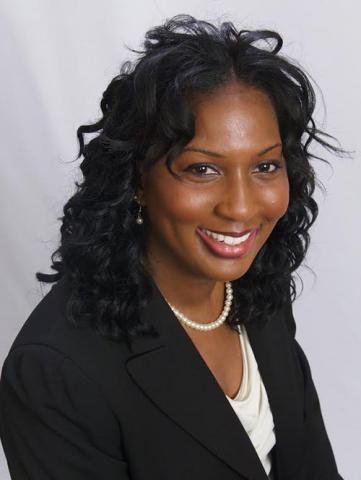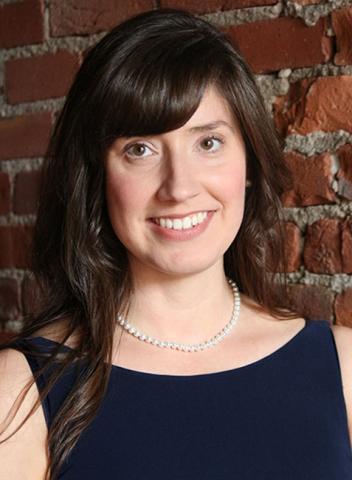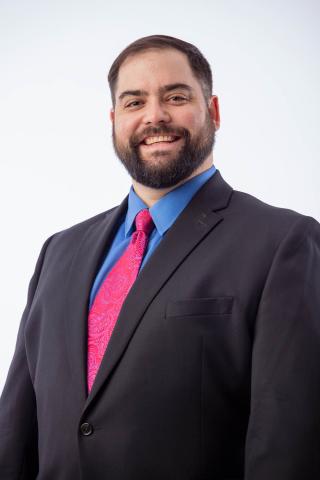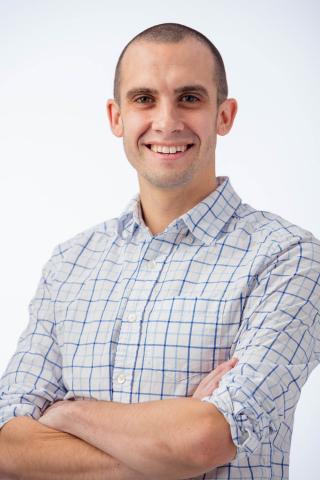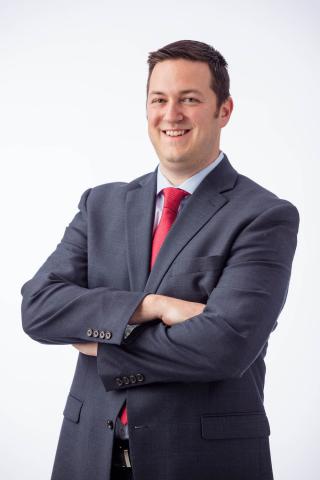New researchers bring liberal arts, business backgrounds and more to heath care research.
By Jessica Ullian
At the Frances Payne Bolton School of Nursing at Case Western Reserve University, five of the school's newest researcher represent a broad range of research interests, academic backgrounds, and methodology. They share a commitment to the innovation and discovery that can yield breakthroughs in preventative care, improved results in clinical settings, and boost quality of life for patients of every age, race, and economic background.
"Research offers a unique opportunity to address questions that have never been answered, and generate new knowledge," said Grant O'Connell, PhD, an assistant professor. "However, it's always been important to me that the knowledge my work generates has the potential to hae a downstream impact on clinical care. The possibility that the work I do in the lab could improve the lives of patients is extremely motivating."
Carolyn Harmon Still, PhD, MSM, AGPCNP-BC, CCRP
Harmon Still (GRS '10, MGT '16) has a secret weapon in her fight against hypertension in minority populations: her ability to read as spreadsheet and balance a budget. After years of clinical work toward her bachelor's, master's, and doctoral degrees in nursing, she took a position project-managing the National Institutes of Health-funded Systolic Blood Pressure Intervention Trial (SPRINT), examining the effect of lower blood pressure on cardiovascular, kidney, and cognitive function in older adults. "I had oversight management of all the clinics, and a study budget of $23.5 million -- and you don't get that training in your PhD program!" Harmon Still said.
Under Dr. Harmon Still's management, the SPRINT study received an additional year of funding to further explore connections with dementia. this additional funding provided some support for her own primary research focus--helping patients use mobile technology to monitor and control their symptoms. Her research has found that while African-Americans disproportionately suffer from hypertension and accompanying comorbidities, the technology-focused interventions -- such as mobile-device applications that allow them to record and monitor exercise and diet -- have not effectively reached that population.
"There seems to be a perception that minority populations do not use technology, or that they are not invited into trials that use technology to improve self-management," Harmon Still said. "We have to start those conversations, and develop training for people to use these devices."
Harmon Still reaps the benefits of her education each day, from the practicum experience years ago that alerted her to the discrepancy in outcomes for minority patients, to her present-discrepancy in outcomes for minority patients, to her present-day focus on real-world solutions for getting proven tools into the hands of underserved populations utilizing technology as a self-management support for hypertension," she said. "We have to link people with technology as a method of improving their health and well-being."
Heather Hardin, PhD, RN
The most critical component of Hardin's research isn't the fMRI she uses to assess adolescent neuro-processing, or the biomarkers to measure self-regulation. It's trust; specifically, how the role of trust in health care affects adolescent weight and depression management.
"When I worked as a nurse and nutritionist for the federal Women, Infants, and Children (WIC) program, several of my patients mentioned trust in discussions about their health," Hardin says. "then our community experienced significant damage from a tornado, and families refused to take assistance from relief organizations because they didn't trust them. But families had no problem accepting the donations when they came from those of us at WIC, where they had established trusting relationships with the staff. These experiences got me thinking about how trust influenced health care."
The potential link between trust and health behaviors in adolescents, who are poised to develop habits as teenagers that can last a lifetime, inspired Hardin to develop a series of pilot studies to evaluate how trust-building can work hand-in-hand with self-management and prevention. One study, part of the National Institute of Nursing Research P30 Self-Management Advancements through Research and Translation (SMART) Center at the School of Nursing, uses fMRI imaging to assess adolescent neuro-processing as it relates to trust and weight management. Another study examines adolescent/parent synchronous heart rate variability during behavioral interactions, with the goal of evaluating and refining depression management interventions.
Hardin's mother was a nurse, and she saw first-hand how that kind of connection to a health care provider can have a positive impact on the long-term health of adolescents, particularly those in at-risk populations, such as people in low-income communities.
"I grew up in a large family from a low-income, rural area, and I've witnessed many of the difficulties in accessing health care and making health care decisions inherent to lack of resources," Hardin said. "My friends would ask my mom their their health questions, because they knew they could get reliable information without judgment."
Now Hardin seeks to help clinicians and researchers replicate those key relationships on a larger scale, through programs including early-stage investigator mentorships and a parent-child study of adolescent obesity. "My passion is helping kids use health care to their advantage," she said. "I'm developing a program of research that helps teens build relationships to make healthy choices within their own lives."
Scott Moore, PhD, APRN, AGPCNP-BC
At first glance, Moore's current field -- the study of aging among people living with HIV by using big data and bioinformatics approaches -- might not have a lot in common with his prior career as a high school speech and debate teacher. But the two are linked in often surprising ways, he says.
"My undergraduate degree in English allows me to look at things from different perspectives," he said. "And sometimes, that can be a great benefit."
Moore, who pursued a second bachelor's degree in nursing after his first degree in English, followed by a master's in nursing and then a doctorate in health care genetics, has had plenty of opportunity to look at health care problems from multiple perspectives. The son of a nurse, he went into health care out of a desire to help people improve their daily health experiences. After beginning his career in emergency and trauma, he moved on to a nurse-managed health care center, where he worked in women's health and served rural communities in South Carolina. The experiences of working with underserved populations helped him refine his focus: understudied and vulnerable populations dealing with complex chronic illnesses and symptom experiences -- specifically, people aging with HIV.
His interdisciplinary background has allowed him to take a precision-health based approach to research, using bioinformatics to examine biologic sex-based differences in HIV-positive geriatrics, and differentiating illness trajectories. Current projects include a nursing research grant from the American Nurses Foundation to observe aging and frailty biobehavioral patterns.
Diversity of skill -- and point of view -- he says, are critical to advancing the work. "Plenty of people continue to bring new approaches and perspectives to nursing, which I think makes nursing science very valuable," he said. "Our ability to lead research teams with varied disciplines is very important and allows us to complement the science of nursing to continue to innovate."
Grant O'Connell, PhD
O'Connell (GRS '13) was halfway through his doctorate in pharmacological sciences when an advisor connected the dots between his studies in molecular biology and his future in research. The missing link? Clinical stroke research, where O'Connell currently investigates the human immune response to stroke, with the goal of developing diagnostics and therapeutics.
"I had a phenomenal advisor who was a clinician and nurse scientist in stroke research. Working with them I realized that there were many ways that advanced molecular biology techniques could be applied to answer clinically relevant questions," he said. "The probability that my research could have true clinical impact was really invigorating."
O'Connell was already well-versed in studies of the central nervous system; he'd studied kinesiology as an undergraduate, writing a thesis on central nervous system trauma in ground squirrels, and received a master's in exercise physiology, examining small-protein signal transduction in skeletal muscle. When he turned to stroke research, he discovered that the same techniques could be used to search for biomarkers in the human immune system, which could be an early indicator of stroke.
"One of our main focuses right now is the use of omic and machine-techniques to search for activation patterns in the circulating immune system," he said. "If we're successful, it could lead to development of a blood-based stroke test that could be used to guide early triage decision-making in the back of an ambulance or in an emergency department."
O'Connell's research has already identified a number of potentially impactful biomarkers; recent and upcoming publications compare stroke-associated patterns of gene expression in machine learning and an independent patient population, how circulating leukocytes perpetuate stroke-induced aortic dysfunction, and how early differential expression of chemotactic geners in peripheral blood predicts post-stroke blood brain barrier disruption.
While his appointment at the School is his first at a school of nursing, O'Connell says that the growing emphasis on interdisciplinary collaboration in both health care and science makes it a natural next step in his research career. "Having a diverse background is particularly useful now," he says. "It can allow you to look at questions through a different lens, and identify truly innovative solutions."
Nicholas Schiltz, PhD
The personal is always political with Schiltz, whose undergraduate studies in political science and quantitative economics go hand-in-hand with his epidemiology research. In using data mining algorithms to analyze large health care databases, including Medicaid claims and the Medical Expenditure Panel Survey, he hopes to get information about outcomes, costs, and predictive analytics that could help nurses and other practitioners navigate the health care system.
"I think a background in political science and economics helps me understand the very complicated U.S. health care system," Schiltz said. "One example preventative care -- almost every clinician and policymaker is in agreement that preventative care is important. But the U.S. lags behind most other developed countries in this area, largely because the market incentivizes performing surgeries rather than preventing the need for them."
Schiltz started his career at the CWRU Population Health and Outcomes Research Core, where his assessments of clinical areas consistently demonstrated a link between comorbidities and poor outcomes. It led to an interest in patients with multiple health conditions, which led to his current assessments on patients with multiple medications.
Ultimately, he hopes his research can yield hands-on results for nurses, whether that means more productive collection and analysis of patient data, or informed leadership on best practice and policy decisions. "Analytics play an increasingly important role in medical decision-making. We need to make sure nurses have a seat at the table, since they are at the front line of care," he said.
Again, Schiltz's investment is personal: his son was born prematurely last year, and spent 10 weeks in the NICU, where Schiltz observed first-hand how well his son's care was coordinated.
"The physicians, nurses, and others worked well together, and made decisions as a team," he said. "That's what good quality care should look like."


